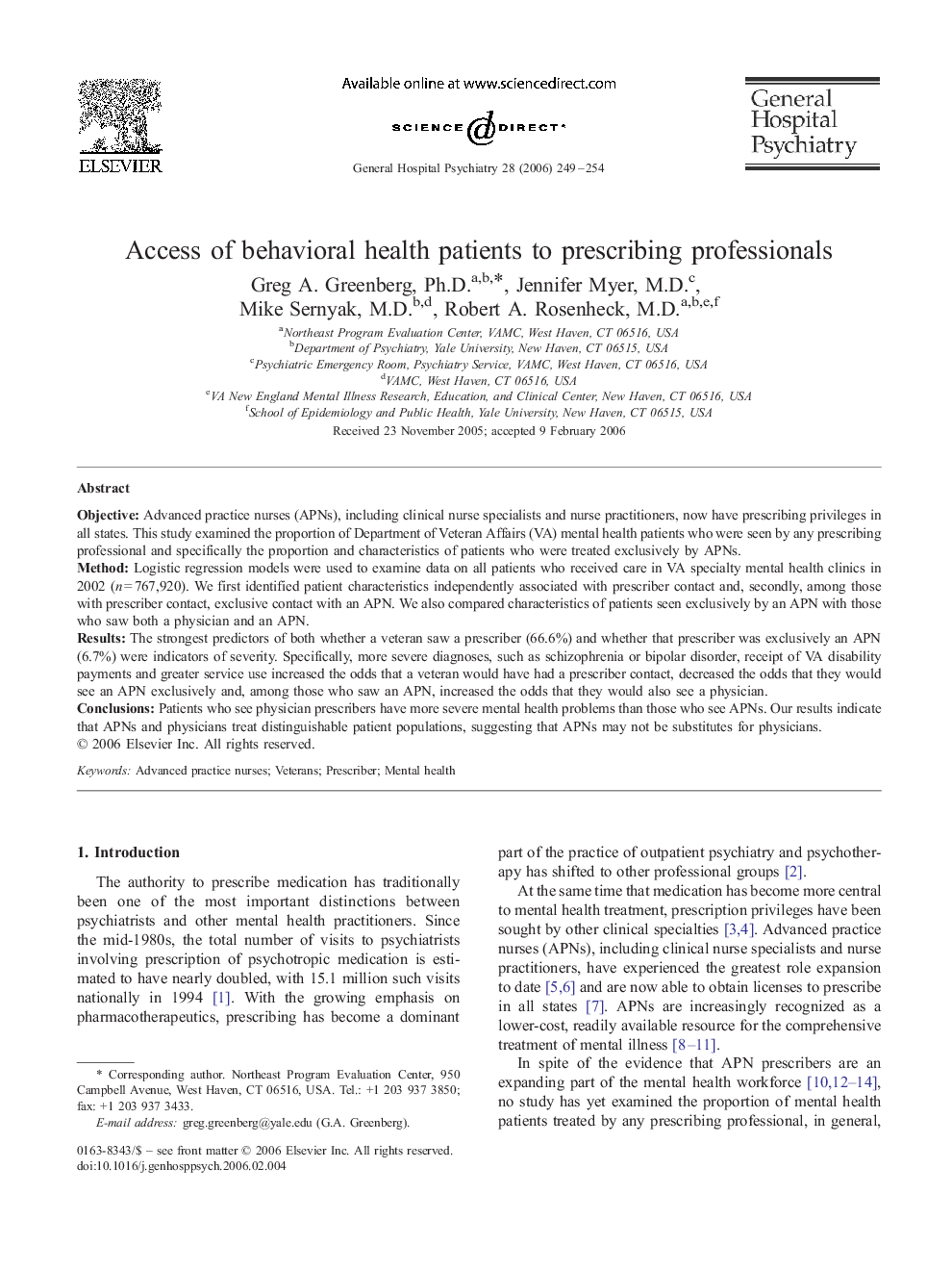| Article ID | Journal | Published Year | Pages | File Type |
|---|---|---|---|---|
| 3238600 | General Hospital Psychiatry | 2006 | 6 Pages |
ObjectiveAdvanced practice nurses (APNs), including clinical nurse specialists and nurse practitioners, now have prescribing privileges in all states. This study examined the proportion of Department of Veteran Affairs (VA) mental health patients who were seen by any prescribing professional and specifically the proportion and characteristics of patients who were treated exclusively by APNs.MethodLogistic regression models were used to examine data on all patients who received care in VA specialty mental health clinics in 2002 (n=767,920). We first identified patient characteristics independently associated with prescriber contact and, secondly, among those with prescriber contact, exclusive contact with an APN. We also compared characteristics of patients seen exclusively by an APN with those who saw both a physician and an APN.ResultsThe strongest predictors of both whether a veteran saw a prescriber (66.6%) and whether that prescriber was exclusively an APN (6.7%) were indicators of severity. Specifically, more severe diagnoses, such as schizophrenia or bipolar disorder, receipt of VA disability payments and greater service use increased the odds that a veteran would have had a prescriber contact, decreased the odds that they would see an APN exclusively and, among those who saw an APN, increased the odds that they would also see a physician.ConclusionsPatients who see physician prescribers have more severe mental health problems than those who see APNs. Our results indicate that APNs and physicians treat distinguishable patient populations, suggesting that APNs may not be substitutes for physicians.
